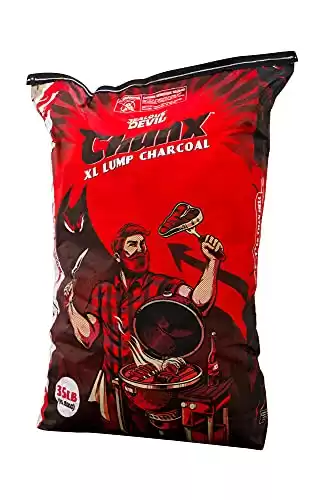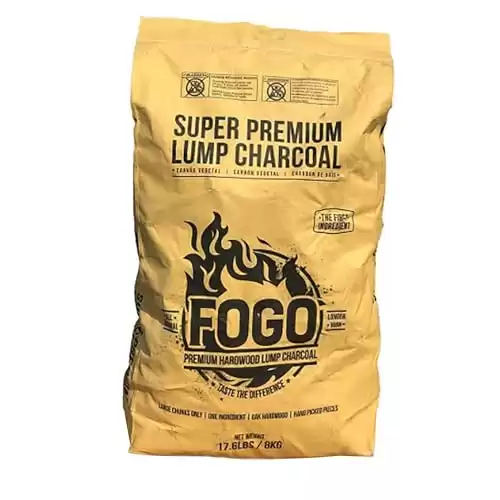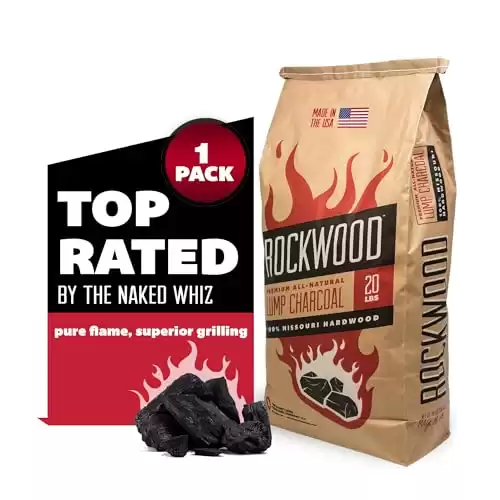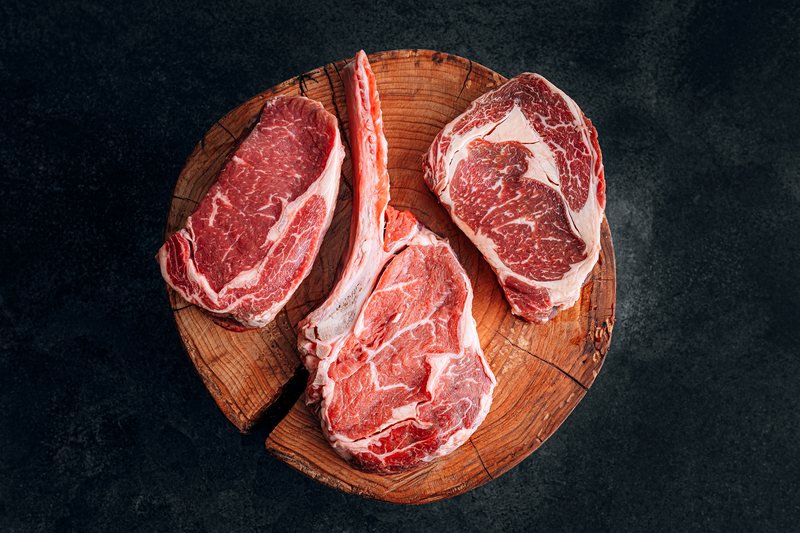
With so many options on the market, it can be overwhelming to know which one to choose.
This article aims to provide a clear and concise answer to the question: what kind of charcoal is best for steak?
First and foremost, it’s important to understand the two main types of charcoal: briquettes and lump charcoal.
Briquettes are made from compressed sawdust and other additives, while lump charcoal is made from natural hardwood.
While both types can be used for grilling steak, there are some differences to consider.
Some argue that briquettes are better for steak because they burn longer and more consistently, allowing for more even cooking.
However, others argue that lump charcoal is better because it burns hotter and produces less ash, which can affect the flavor of the meat.
Ultimately, the choice between briquettes and lump charcoal comes down to personal preference and the specific qualities desired in the final product.
Best Charcoal for Steak
|
Our Rating:
4.6
|
Our Rating:
4.6
|
Our Rating:
4.6
|
|
$37.32
|
$32.95
|
$39.99
|
|
Description: A premium fuel option for grilling and smoking, designed to deliver high performance and exceptional flavor. Made from dense South American hardwoods, this charcoal burns hotter and longer than many alternatives, reducing the need for frequent refueling. |
Description: A high-quality grilling and smoking fuel designed for top-tier performance. Made from all-natural oak hardwood, it is renowned for its restaurant-grade quality and large-sized lumps, which ensure consistent heat and longer burn times. |
Description: A premium grilling and smoking fuel crafted from a mix of oak, hickory, and cherry hardwoods, providing a rich, smoky flavor to your BBQ. |
A premium fuel option for grilling and smoking, designed to deliver high performance and exceptional flavor. Made from dense South American hardwoods, this charcoal burns hotter and longer than many alternatives, reducing the need for frequent refueling.
A high-quality grilling and smoking fuel designed for top-tier performance. Made from all-natural oak hardwood, it is renowned for its restaurant-grade quality and large-sized lumps, which ensure consistent heat and longer burn times.
A premium grilling and smoking fuel crafted from a mix of oak, hickory, and cherry hardwoods, providing a rich, smoky flavor to your BBQ.
Types of Charcoal for Grilling Steak
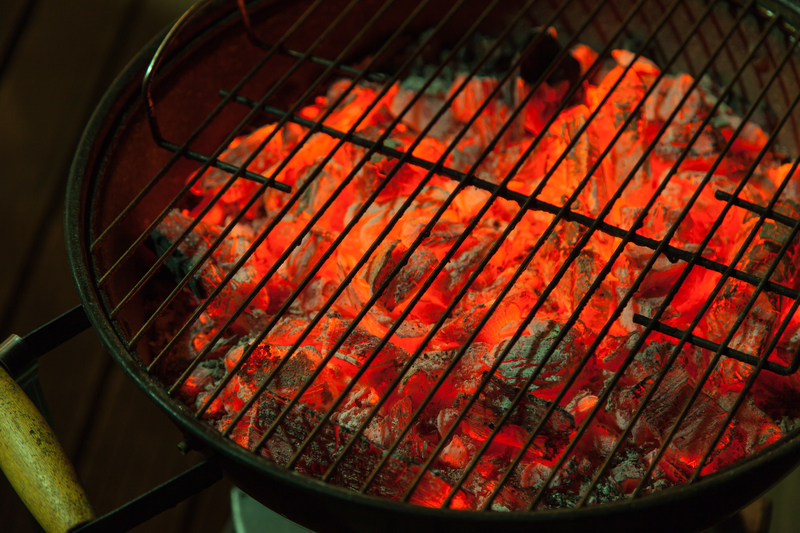
Lump Charcoal
Lump charcoal is made by burning hardwood without any additives or binding agents.
It is a popular choice for grilling steak because it burns hotter and faster than briquettes, which makes it ideal for searing.
Lump charcoal also produces less ash than briquettes, which means less mess to clean up after grilling.
However, because it is made from natural wood, the size and shape of the charcoal pieces can vary, which can make it difficult to control the temperature of the grill.
Briquettes
Briquettes are made by compressing charcoal dust and other ingredients into uniform shapes.
They are a convenient and consistent option for grilling steak because they burn at a steady temperature and produce less smoke than lump charcoal.
Briquettes also tend to last longer than lump charcoal, which means less refilling during longer grilling sessions.
However, some briquettes contain additives such as coal dust and borax, which can affect the flavor of the steak.
Binchotan
Binchotan is a type of charcoal that is traditionally used in Japanese cooking.
It is made from oak or other hardwoods that are slowly burned in a kiln at high temperatures.
Binchotan burns hotter and longer than other types of charcoal, which makes it ideal for grilling steak.
It also produces less smoke and ash than other types of charcoal, which means less mess to clean up after grilling.
However, binchotan can be expensive and difficult to find outside of specialty stores.
Factors to Consider When Choosing Charcoal
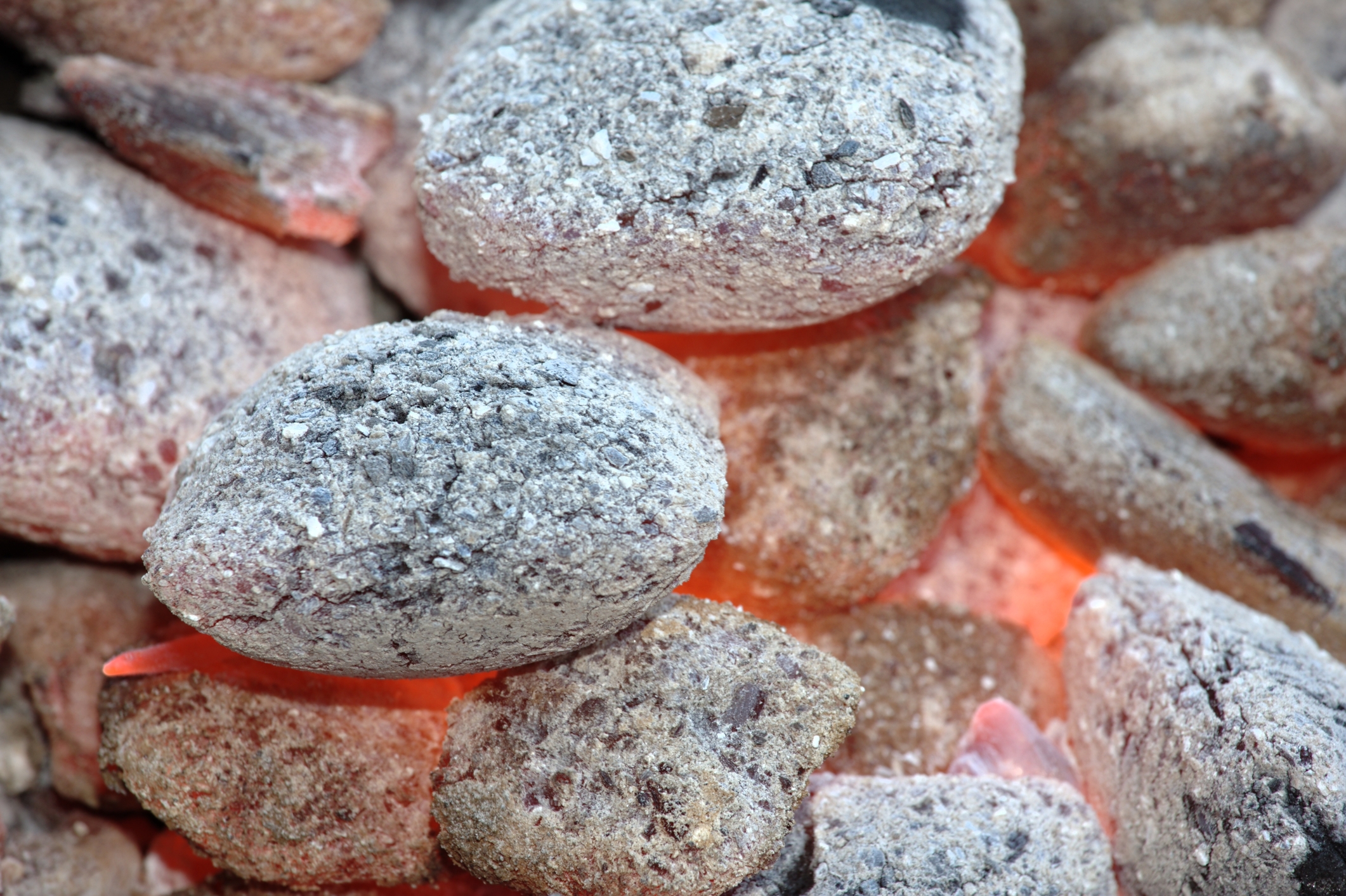
Heat Generation
The heat generated by charcoal is an important factor to consider when choosing the right charcoal for your steak.
Hardwood charcoal, such as oak or hickory, tends to burn hotter and produce more intense heat, making it ideal for cooking thick steaks.
On the other hand, softer woods like fruitwoods, such as apple or cherry, burn at a lower temperature and are better suited for thinner cuts of steak.
Burn Time
The burn time of charcoal is another important factor to consider.
Charcoal that burns for a longer period of time is ideal for cooking larger cuts of steak, while charcoal that burns quickly is better suited for smaller cuts.
Hardwood charcoal tends to burn longer than other types of charcoal, making it a good choice for larger cuts of steak.
Flavor Contribution
The type of wood used to make the charcoal can have a significant impact on the flavor of the steak.
Hardwood charcoal imparts a smoky flavor to the steak, while fruitwood charcoal adds a subtle fruity flavor.
Some charcoal manufacturers also add flavoring agents, such as mesquite or hickory, to their charcoal to enhance the flavor of the steak.
Ease of Use
Charcoal that is easy to light and maintain is ideal for cooking steak.
Lump charcoal, which is made from hardwood, is easy to light and burns at a consistent temperature, making it a popular choice among grill enthusiasts.
Briquettes, on the other hand, are made from compressed charcoal and other ingredients, and may contain fillers or binders that can affect the flavor of the steak.
Ash Production
Charcoal that produces a minimal amount of ash is ideal for cooking steak, as it reduces the need for frequent cleaning of the grill.
Hardwood charcoal tends to produce less ash than other types of charcoal, making it a good choice for grill enthusiasts who want to spend more time cooking and less time cleaning up.
Overall, the choice of charcoal for cooking steak depends on personal preference and the specific cut of steak being cooked.
By considering factors such as heat generation, burn time, flavor contribution, ease of use, and ash production, grill enthusiasts can choose the right charcoal to achieve the perfect steak every time.
Charcoal Additives and Their Impact on Steak
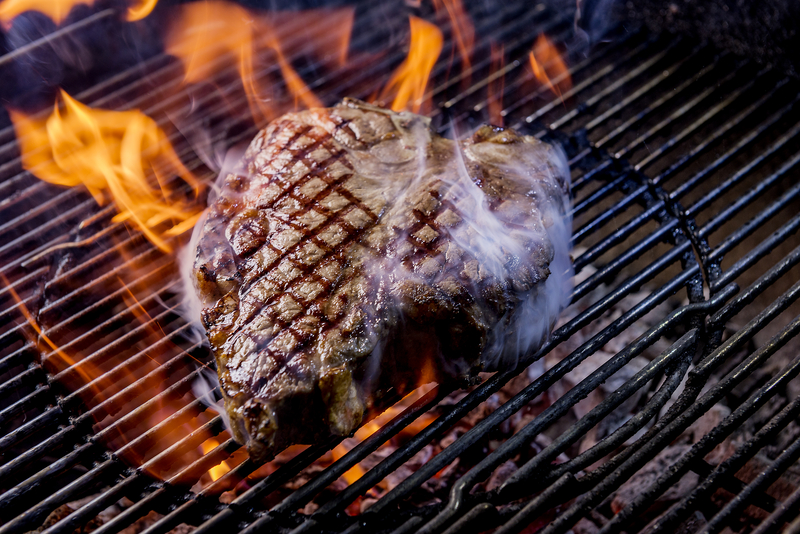
Natural vs. Chemical Additives
When it comes to charcoal additives, there are two main types: natural and chemical.
Natural additives, such as wood chips or sawdust, are often used to add flavor to the charcoal.
On the other hand, chemical additives, such as binders, accelerants, or fillers, are used to improve the burning characteristics of the charcoal.
While natural additives are generally considered safe, some chemical additives may contain harmful substances.
Therefore, it is important to read the label carefully and choose charcoal with natural additives whenever possible.
Impact on Taste
The type of charcoal and its additives can significantly impact the taste of the steak.
Charcoal with natural additives, such as mesquite or hickory, can add a smoky flavor to the steak, while chemical additives may alter the taste or produce unwanted flavors.
It is important to note that the type of wood used in the charcoal can also affect the taste.
For example, oak charcoal may produce a milder flavor, while applewood charcoal may produce a sweeter flavor.
Health Considerations
When choosing charcoal for steak, it is important to consider any health implications.
Chemical additives, such as binders or fillers, may contain harmful substances that can be released during the cooking process and potentially harm the consumer.
Therefore, it is recommended to choose charcoal with natural additives and avoid charcoal with chemical additives whenever possible.
Additionally, it is important to follow safe grilling practices, such as avoiding overcooking and charring the steak, to minimize the formation of harmful compounds.
Best Charcoal Brands for Steak
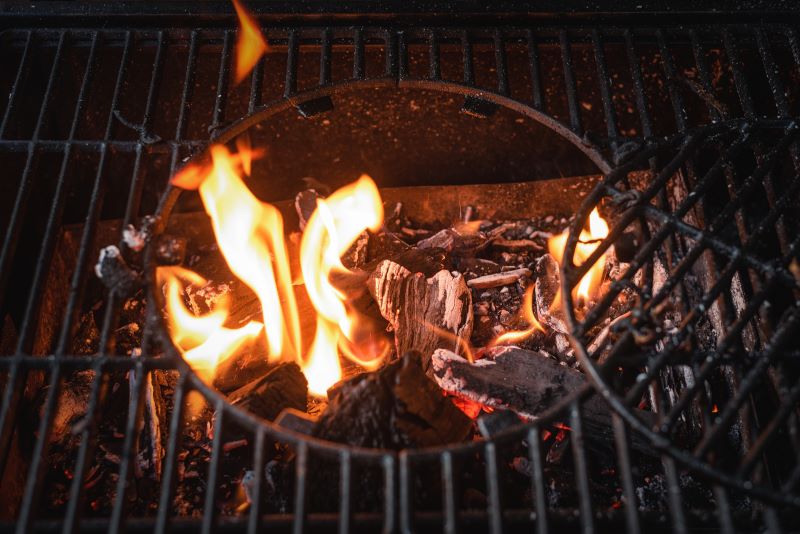
Premium Brands
When it comes to premium charcoal brands for steak, there are a few options that stand out.
These brands are known for their high-quality charcoal that burns hot and evenly, resulting in a perfectly cooked steak every time.
- Jealous Devil: This brand is known for its all-natural hardwood lump charcoal, which is made from South American hardwoods. The charcoal burns hot and produces very little ash, making it perfect for grilling steaks.
- Fogo: Fogo’s premium charcoal is made from Central American hardwoods and is known for its long burn time and consistent heat. This charcoal is perfect for searing steaks and creating a delicious crust.
- Rockwood: Made from Missouri hardwoods, Rockwood charcoal is known for its clean burn and consistent heat. This charcoal is perfect for grilling steaks and other meats.
Budget-Friendly Options
If you’re looking for a more budget-friendly option, there are still some great charcoal brands that can produce a delicious steak.
- Kingsford: Kingsford charcoal is a classic choice for grilling and is known for its affordability. While it may not produce the same level of heat as premium brands, it still gets the job done and can produce a delicious steak.
- Royal Oak: Royal Oak charcoal is made from American hardwoods and is known for its affordability and consistent heat. This charcoal is perfect for grilling steaks and other meats.
Overall, when it comes to choosing the best charcoal for steak, it’s important to consider your budget and what type of cooking experience you’re looking for.
Whether you choose a premium brand or a budget-friendly option, there are plenty of great charcoal brands out there that can help you create the perfect steak.
Preparation and Lighting Techniques
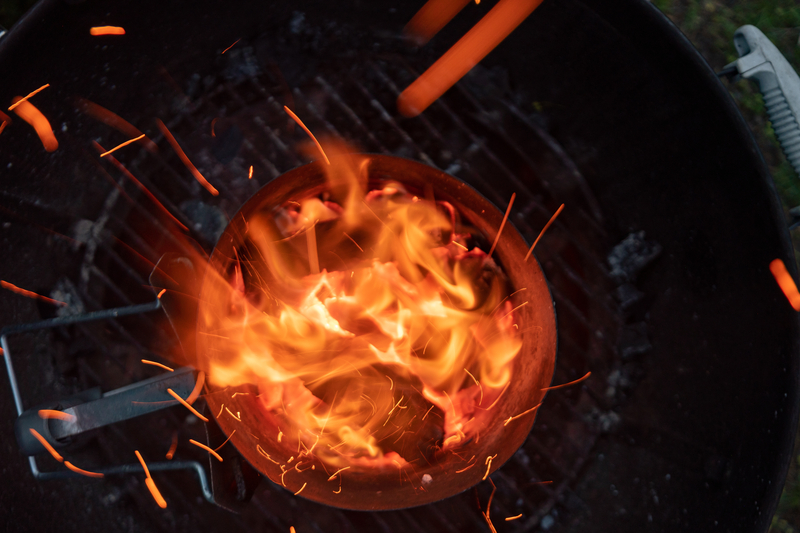
Chimney Starters
One of the most popular ways to light charcoal is by using a chimney starter.
A chimney starter is a metal cylinder with a handle and a grate at the bottom.
To use a chimney starter, place crumpled newspaper or fire starters in the bottom, fill the cylinder with charcoal, and light the paper or fire starters.
The heat from the paper or fire starters will ignite the charcoal, and the chimney will create a draft that will help the charcoal burn evenly.
Using a chimney starter has several advantages.
It is an easy and efficient way to light charcoal, and it does not require lighter fluid, which can leave an unpleasant taste on the food.
Additionally, chimney starters are relatively inexpensive and can be reused many times.
Direct Lighting Method
The direct lighting method is another way to light charcoal.
To use this method, simply place the charcoal in the grill and add lighter fluid.
Light the charcoal and wait for it to burn down to the desired level of heat.
While this method is simple and easy, it has some disadvantages.
The lighter fluid can leave an unpleasant taste on the food, and it can also be dangerous if not used properly.
It is important to follow the manufacturer’s instructions when using lighter fluid and to never add more fluid to the charcoal once it has been lit.
Overall, the chimney starter method is the preferred way to light charcoal for grilling steak.
It is easy, efficient, and does not leave an unpleasant taste on the food.
However, the direct lighting method can be used in a pinch if a chimney starter is not available.
Safety and Maintenance Tips
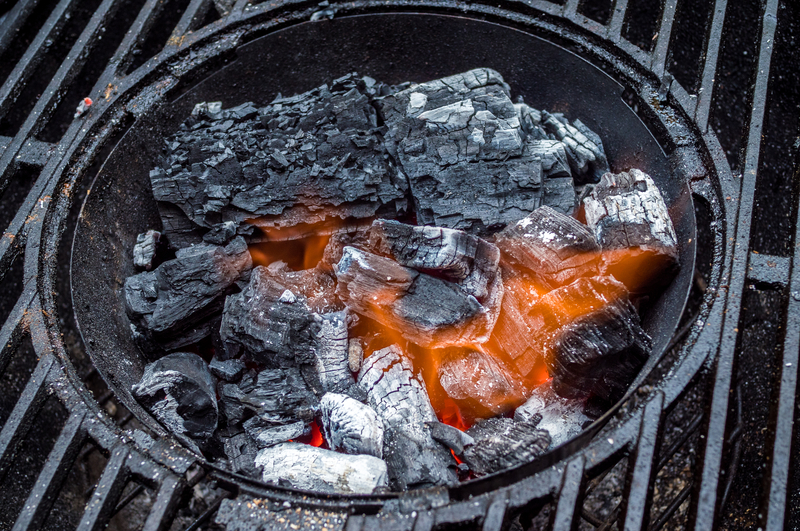
Proper Ventilation
When grilling with charcoal, it is important to ensure proper ventilation to prevent the buildup of harmful carbon monoxide gas.
Always grill in an open area with good air circulation and avoid grilling in enclosed spaces such as garages or tents.
Additionally, make sure the grill is a safe distance away from any flammable materials.
Charcoal Storage
To ensure the longevity of your charcoal and maintain its quality, it is important to store it properly.
Keep charcoal in a dry place, away from moisture or humidity, as damp charcoal can be difficult to light and may produce excessive smoke.
It is also important to keep charcoal away from any flammable materials.
Grill Cleaning
After each use, it is important to properly clean your grill to prevent the buildup of harmful bacteria and ensure the longevity of your grill.
Use a wire brush to remove any leftover food particles and ash from the grates, and wipe down the exterior of the grill with a damp cloth.
For a deeper clean, use a grill cleaner specifically designed for charcoal grills.
By following these safety and maintenance tips, you can ensure a safe and enjoyable grilling experience with your preferred type of charcoal.
Environmental Considerations of Charcoal Grilling
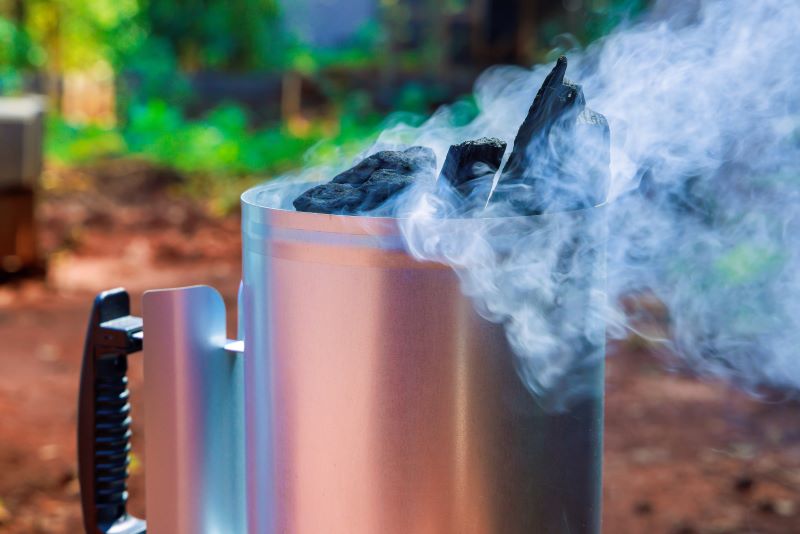
Charcoal grilling is a popular method of cooking, but it does have some environmental considerations.
Here are a few things to keep in mind when choosing charcoal for your grill:
Charcoal Production
The production of charcoal can have significant environmental impacts.
Some charcoal is made by cutting down trees and burning them in kilns, which can contribute to deforestation and air pollution.
However, many manufacturers now use sustainable methods, such as using waste wood or using fast-growing trees that are specifically grown for charcoal production.
Charcoal Composition
The composition of the charcoal you choose can also have environmental implications.
Some charcoal contains additives or binders that can release harmful chemicals when burned.
Look for charcoal made from pure wood with no additives for a cleaner burn.
Charcoal Disposal
Charcoal ash can be harmful to plants and wildlife if not disposed of properly.
Make sure to let your charcoal cool completely before disposing of it in a metal container.
Do not dispose of charcoal in plastic or paper bags, as they can ignite and cause a fire.
By considering these environmental factors, you can enjoy the delicious taste of charcoal-grilled steak while minimizing your impact on the environment.
Expert Recommendations for the Perfect Steak
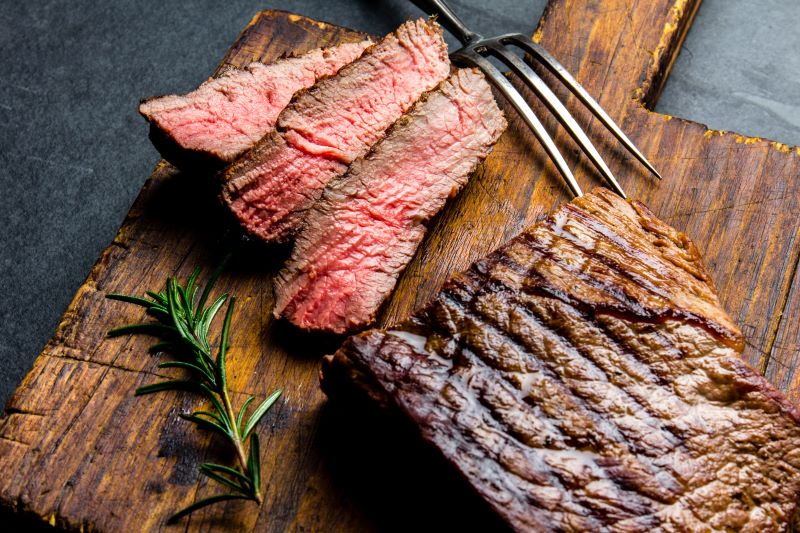
When it comes to grilling the perfect steak, choosing the right charcoal can make all the difference.
Here are some expert recommendations to help you achieve the perfect steak:
1. Hardwood Lump Charcoal
Hardwood lump charcoal is a favorite among many grill masters for its natural and authentic flavor.
It is made by burning wood in the absence of oxygen, leaving behind pure carbon in the form of charcoal.
This type of charcoal burns hotter and faster than briquettes, making it ideal for searing steaks.
2. Briquettes
Briquettes are a popular choice for their consistency and affordability.
They are made by compressing sawdust and other wood scraps with binders and additives.
While they may not offer the same natural flavor as hardwood lump charcoal, they burn longer and more evenly, making them a reliable option for grilling steaks.
3. CHARCOAL BLENDS
Charcoal blends are a mix of hardwood lump charcoal and briquettes, offering the best of both worlds.
They provide the natural flavor of hardwood lump charcoal with the consistency and affordability of briquettes.
This type of charcoal is a great choice for those who want to balance flavor and convenience.
No matter which type of charcoal you choose, it’s important to use high-quality charcoal and avoid lighter fluid or other chemical starters.
With these expert recommendations, you can grill the perfect steak every time.


